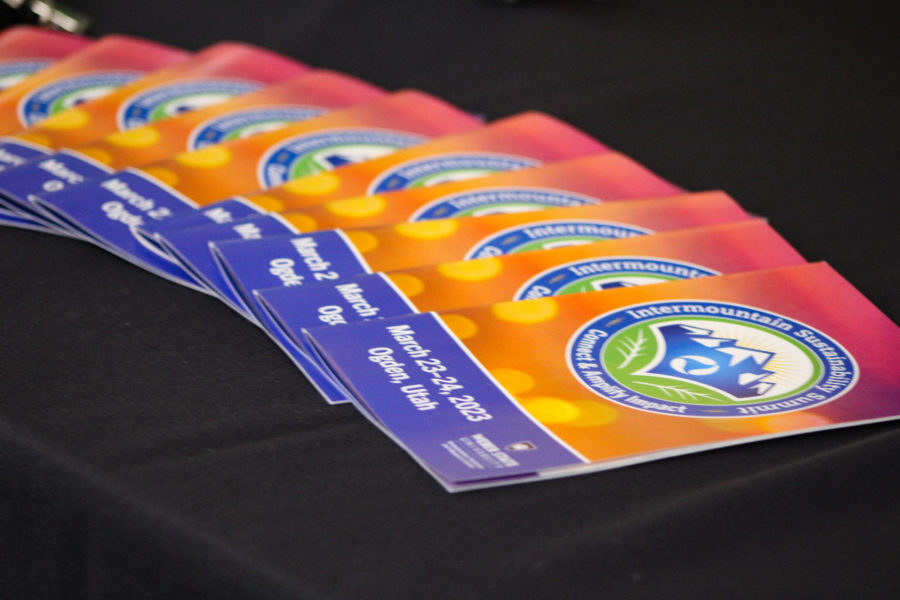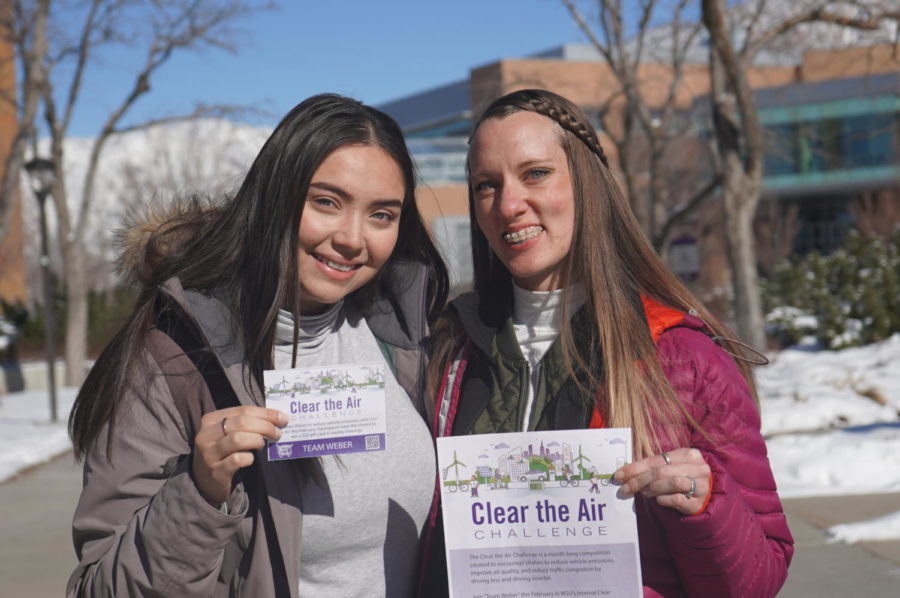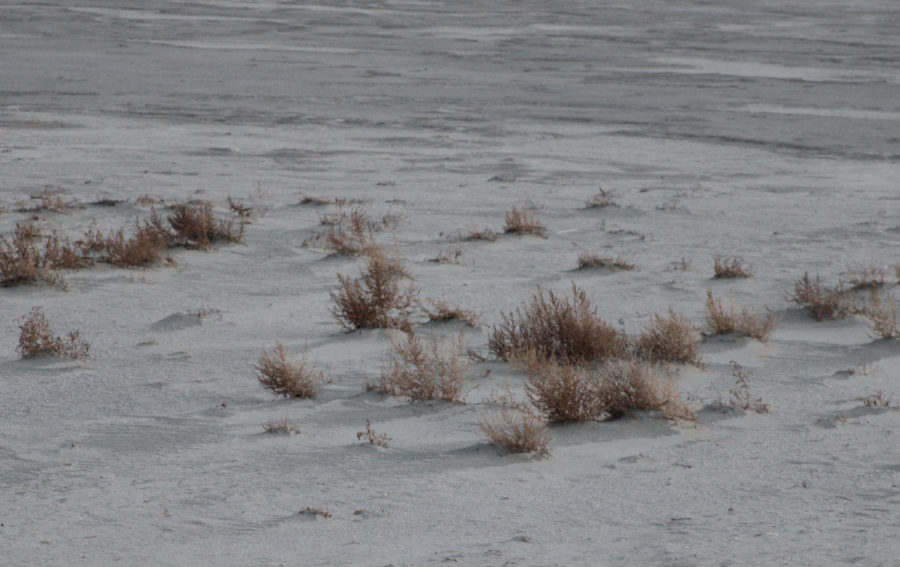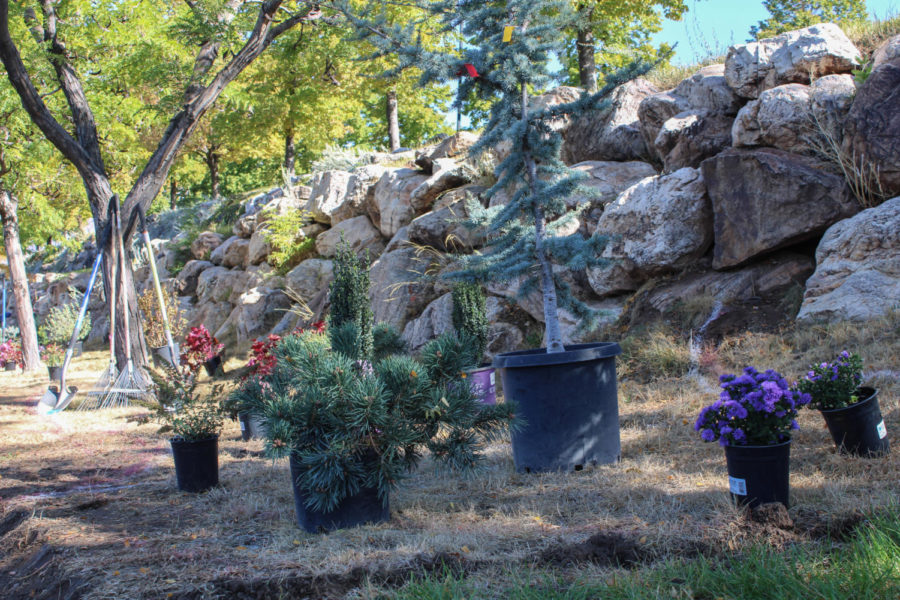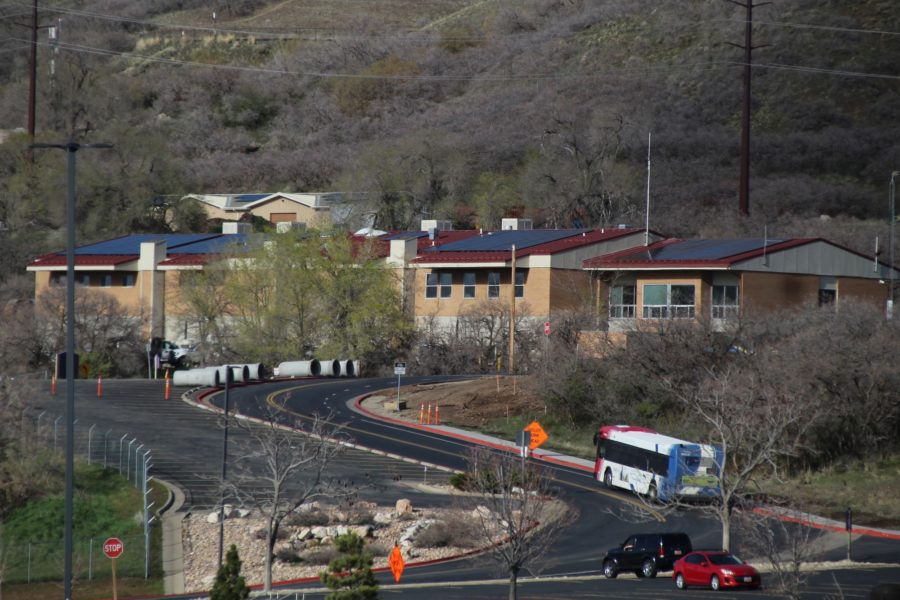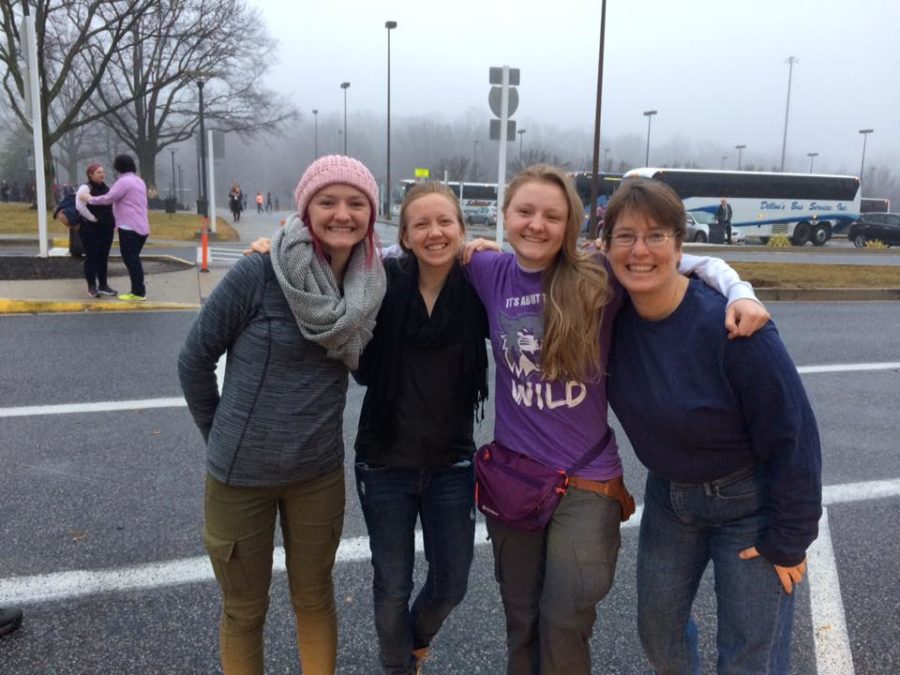
Beesley lets a honey bee rest in the palm of her hand.
Bees can be the thing of nightmares. The buzzing sound in your ear can create a knee-jerk reaction that looks as if you are attempting some kind of martial arts. However, honeybees play a crucial role in our everyday lives. Although they are very important to us, their existence has been jeopardized.
Pesticides that we use in our gardens and on our crops have been linked to the deaths of honeybees and other pollinators.
Local beekeeper and owner of Beesley’s Best Honey, Casey May Beesley has noticed a change in the bees due to pesticides.
“I live near farmland and have noticed an increase in diseased beehives due to farmers spraying their crops,” said Beesley.
Currently the pesticides we use have neonicotinoids which is more harmful to the bees and other pollinators than dichlorodiphenyltrichloroethane (DDT). DDT was used as a pesticide, but was banned in 1972 to help protect wildlife and the human population.
“Accumulating evidence, including some good recent work, indicates that these chemicals are one of the leading suspects in the problem of Colony Collapse Disorder,” explained John Mull, a zoology professor at Weber State University.
The U.S. Department of Agriculture (USDA) is currently looking at ways to help encourage other species of native and non-native pollinators. The USDA Bee Lab in Logan, Utah is one place to learn more about other bee pollinators.
“Some efforts and research on them are underway, but for the foreseeable future we will continue to rely heavily on honeybees to pollinate our crops,” said Mull.
“People can stop using chemicals on plants including Roundup, and other brands of weedkiller and insecticides in their gardens,” advised Beesley.
Ogden resident and beekeper Adam Hiller says that there are many ways that students, faculty and locals can help their local bee population thrive. “Plant bee-friendly plants and flowers. These will provide the bees with good sources of nectar and pollen, they eat both,” said Hiller.
Honeybees can also use plants and herbs medicinally for themselves according to Hiller.
“Some are even medicinal for them, like thyme. Avoid any genetically modified (GMO) plants that are designed to produce pesticides for the same reason you don’t want to spray pesticides,” said Hiller.
Research shows that if the bees and other pollinators die, life for humans would become extremely difficult.
“People would have a much more limited diet if honeybees died off,” said Beesley.
Beekeeping is another option to help the population of honeybees grow. Keeping bees may not be as hard as some may think.
“Keeping bees is not really hard. They feed themselves, clean up after themselves, take themselves out for a walk, well, flight,” said Hiller.
The main responsibility of a keeper is to make sure that the hive is healthy and safe. Watching for diseases that can devastate local bees is another responsibility of a beekeeper. Besides the benefit of the yield in honey, keepers will notice other benefits for time spent helping keep bees healthy and safe.
“It is time that is well-paid off in increased vegetable and fruit yield in your garden,” said Hiller.

A honeybee of local beekeeper and owner of Beesley’s Best Honey, Casey May Beesley.
To start up your own hive, check local laws and ordinances. There may be zoning laws in your area on how far away a hive has to be from a structure. Hiller recommends reading books before starting your hive.
“Make friends with people through beekeeping clubs or the beekeeping supply store. Intermountain Farmers Association, Jones Bee in Salt Lake City and Deseret Hive Supply here in Ogden are great resources,” commented Hiller.
Other forms of getting involved in keeping our bees safe include the activist route. Beyond Pesticides is an organization of beekeepers and environmentalists that is taking its fight to the U.S. government. Currently there is a petition in effect to stop the use and selling of harmful pesticides.
What should you do if you hear a buzz by your ear? Don’t panic and go into a fit of flailing limbs. Learn the differences between a honeybee, a wasp and a hornet to make sure you aren’t killing a honeybee.
“Honeybees are completely non-aggressive when away from their hive and will only sting as an absolute last resort because it means death for them. My sister-in-law is extremely allergic but she can sit safely in our back yard with the hive only a couple dozen feet away,” assured Hiller.
For a list of seasonal plants that honeybees love to help your garden and yard become more honeybee friendly, visit http://www.buzzaboutbees.net/plants-for-bees.html.



